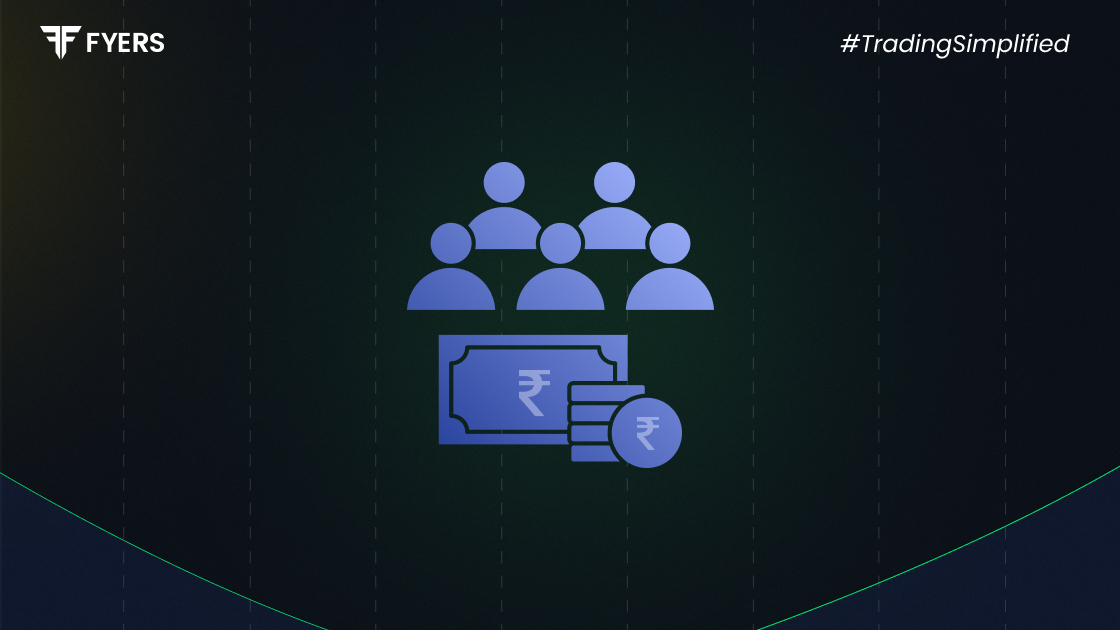

 31 Jul, 2025
31 Jul, 2025
 4 mins read
4 mins read

Trading in the Indian stock market can feel like navigating a toll road - while the journey may be rewarding, there are costs at every juncture. One such fee, often overlooked, is the depository participant charge, commonly known as the DP charge. This cost, tied to your Demat account, can quietly erode your returns, particularly if you trade frequently.
In this guide, we’ll explain what DP charges are, when they apply, who levies them, and how to avoid DP charges or at least mitigate their impact.
DP charges, short for depository participant charges, are fees imposed by your broker (serving as a Depository Participant) for facilitating the debit of shares from your Demat account. These are entirely distinct from brokerage fees, GST, STT, and exchange transaction charges.
Levied only when shares are sold or transferred from your Demat account
Calculated per ISIN per day, regardless of the quantity sold (selling 1 or 1,000 shares incurs the same charge)
These are flat-rate charges, unaffected by trade value
You may encounter DP charges in Demat account usage under the following circumstances:
Delivery-based sale of shares from your Demat account
Off-market transfers, such as gifting of shares
Pledging or unpledging of securities for collateral
Redemption of debt instruments held in Demat form
DP transaction charges do not apply to:
Purchase transactions
Intra-day trades (since no delivery of shares takes place)
Futures & Options (F&O) contracts
Most mutual fund transactions in Demat form
India’s two principal depositories are:
|
Depository |
Description |
|---|---|
|
CDSL (Central Depository Services Limited) |
Predominantly used by retail brokerages |
|
NSDL (National Securities Depository Limited) |
Common among full-service brokers and banking platforms |
Your broker, acting as a Depository Participant (DP), is affiliated with one of these institutions. While both CDSL DP charges and NSDL DP charges have standardised base rates, brokers overlay their own margins.
|
Feature |
CDSL |
NSDL |
|---|---|---|
|
Typical Fee Range |
₹5.50 + GST per ISIN |
₹4.50 to ₹25 + GST per ISIN |
|
Charge Frequency |
Per sell transaction per ISIN |
Per sell transaction per ISIN |
|
Broker-Level Variation |
Limited |
Broader variation possible |
Note: CDSL has announced a reduction in base transaction charges effective from 1 June 2024. This revision, reflected in July billing cycles, could significantly lower costs especially for retail investors trading via discount brokers.
Although DP transaction charges are non-negotiable for delivery-based trades, several strategies can help reduce their impact:
Sell All Holdings in One Transaction
Since charges apply per ISIN per day, consolidate trades to avoid incurring multiple fees.
Avoid Frequent Small Sell Orders
Spreading out small sell transactions across multiple days leads to repetitive DP charges. Group them where possible.
Select a Broker with Competitive DP Charges
Broker DP fees vary. While some levy ₹8 + GST per ISIN, others may charge upwards of ₹20. Look beyond brokerage alone.
Use Intra-Day Trading Where Appropriate
Since intra-day transactions do not involve the Demat account, DP charges are not applicable.
Limit Off-Market Transfers
Transfers such as gifting can attract additional charges. Avoid unless absolutely necessary.
Review Broker Add-On Fees Carefully
Certain brokers bundle handling or technology surcharges into DP charges. Examine your contract notes and fund statements to spot these.
Consider Gender-Based Pricing Variants
Some brokers offer marginal discounts in DP charges to female account holders.
Track Charges in the Funds Statement
DP charges typically appear in your Demat account’s funds ledger, not the trade contract note. Monitor them proactively.
While DP charges might seem like a small line item, they can quietly eat into your profits - especially if you're an active trader making frequent delivery-based transactions. By understanding how these charges work, when they apply, and how different brokers and depositories structure them, you can make smarter decisions that protect your overall returns. With the recent fee revisions from CDSL taking effect, now is the perfect time to review your trading patterns and broker fees. A few thoughtful adjustments can lead to meaningful savings in the long run.
DP charges are collected by your depository participant (usually your broker) on behalf of NSDL or CDSL.
No, they vary. Each broker can set their own fee structure within the depository's limits.
They do not apply on buy trades, intra-day trades, and F&O transactions.
No, mutual funds held in Demat form generally do not attract DP charges when bought or redeemed.
Calculate your Net P&L after deducting all the charges like Tax, Brokerage, etc.
Find your required margin.
Calculate the average price you paid for a stock and determine your total cost.
Estimate your investment growth. Calculate potential returns on one-time investments.
Forecast your investment returns. Understand potential growth with regular contributions.